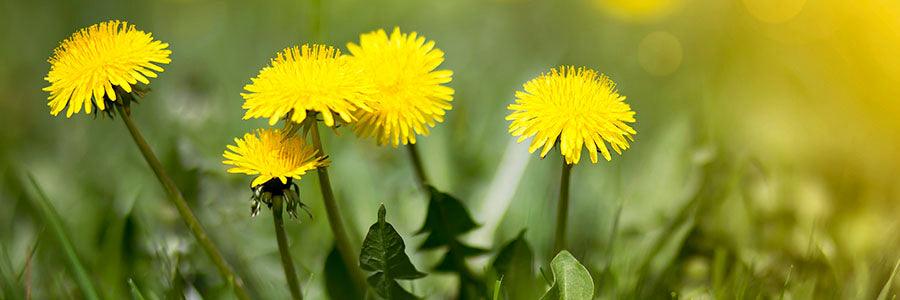This common flowering herb is a part of the sunflower family. Dandelion (Taraxacum officinale) root and leaf have long been revered in herbal medicine across Asia, Europe, and North America. Traditionally, dandelion has been used primarily to promote digestion and support the liver.
Today, the leaf is a popular and nutritious salad ingredient, while roasted dandelion root is consumed as an herbal stimulant in place of caffeine. Dandelion can also be dried and used as a tea or a powdered supplement. The purest, most potent formulations are extracts of dandelion root or leaf or a combination of the two.
Dandelion root and leaf extract are both valued for supporting digestive health. Dandelion is used to promote appetite, soothe the stomach, relieve occasional gas, and promote regularity.
Benefits of Dandelion:*
Dandelion Root Extract:
- Supports digestion
- Soothes the GI tract
- Promotes a healthy gut microbiome
- Supports balanced blood sugar levels
- Promotes healthy liver function
- High in antioxidants
Dandelion Leaf Extract:
- Helps eliminate water retention
- Promotes digestion
- Supports liver function and a healthy urinary tract
- Supports healthy vision
- High in antioxidants
- Supports circulation and healthy blood pressure
How Dandelion Extract Works*
Dandelion roots contain a fiber called inulin that has demulcent and prebiotic properties. A demulcent is a substance that forms a coating over a mucous membrane, creating a soothing effect.
As a prebiotic, dandelion root promotes the growth of beneficial flora in the gut and helps to balance the gut microbiome.
As bitters, both dandelion leaf and root promote bile production to support healthy digestion. The compounds responsible for the bitter taste are also linked to promoting healthy liver function.
Several compounds in dandelion have been associated with balancing the inflammatory process. And a 2008 study in the Journal of Alternative Complementary Medicine suggests dandelion helps promote the body’s natural detoxification and elimination processes.
Side effects: Avoid dandelion if you are allergic to ragweed or related plants, including daisies, chrysanthemums, and marigolds.
Dandelion is high in vitamin K; if you are on a blood thinning medication, consult your health care practitioner before taking dandelion.
Dandelion may inhibit the absorption of antibiotics; avoid dandelion extract if you are using antibiotics.




